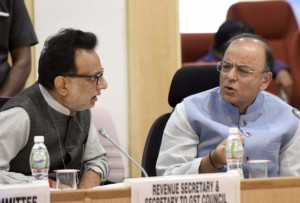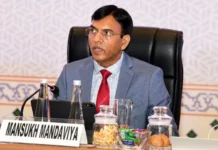 NEW DELHI: The announcement of a new health protection scheme and the budgetary allocation of Rs 52,000 crore for the sector has evoked a mixed reaction from experts and health bodies, with some criticizing the “mere” increase as “disappointing”.
NEW DELHI: The announcement of a new health protection scheme and the budgetary allocation of Rs 52,000 crore for the sector has evoked a mixed reaction from experts and health bodies, with some criticizing the “mere” increase as “disappointing”.
While a set of experts termed the announcement of the new health protection scheme a “gamechanger”, others opined the step will make healthcare accessible to the poorest, provided it reaches them. The latter also said the experience with previous insurance schemes points out that they “tend to end as damp squibs”.
The Centre has announced the world’s largest government-funded healthcare program aimed at benefiting 10 crore poor families by providing a coverage of up to Rs 5 lakh per family per year for secondary and tertiary care hospitalization.
The budget allocation for the Health Ministry for 2018-19 is Rs 52,800 crore in comparison to the previous allocation of Rs 47,352.51 crore, an increase of 5,448 crore or around 11.5 per cent.
“A mere 11.5 per cent increase in budgetary allocations for health from Rs 47,353 crore from previous year to Rs 52,800 crores is disappointing and discouraging especially with the announcement of schemes that require large sums of money,” said Poonam Muttreja, Executive Director, Population Foundation of India (PFI).
She said the budgetary allocations are clearly “mismatched” with the stated policies goals despite the political commitment to increase investments in health (National Health Policy 2017), family planning, and achieve better health outcomes (SDG Goals).
“The continuing trend of lower budgetary allocations for health reinforces the fact that while there is the intention and attempt to improve the health status in the country, the financial commitment continues to be missing for translating these goals into action,” Muttreja said.
The allocation for family welfare schemes under central sector schemes, which is meant for procurement and distribution of contraceptives, has increased only marginally by 2 per cent (Rs 770 crore) over the budget (Rs 755 crore) current financial year.
“This will be insufficient not only to meet the future demand but will also fall short of the current demand for contraceptives and for improving the much-needed quality of services,” Muttreja said.
The Ayushman Bharat initiative and the National Health Protection Scheme announced by the Finance Minister is a welcome move for the country’s healthcare development, Muttreja added.
Others like Prathap Reddy, Chairman, Apollo Hospitals, said that such (new scheme) ambitious out-of-the-box thinking was a burning “need of the hour”.
“My heartiest congratulations to this government for investing in creating a Swasth Bharat by launching the Ayushman Bharat program. Such ambitious out-of-the-box thinking was a burning need of the hour and the government has not disappointed.
“The initiative to cover 10 crore families with Rs 5 lakh per family per year with insurance cover for secondary and tertiary healthcare will be a gamechanger,” Reddy said.
Sunita Narain, Director General, Centre for Science and Environment (CSE), while referring to the new health protection scheme said it must be acknowledged that this significant measure might make healthcare accessible to some of the poorest in the country – provided it reaches them.
“The experience with previous insurance schemes tells us that most such measures tend to end as damp squibs in the absence of effective implementation and monitoring,” she said.
Narain pointed out that putting in place such schemes are essentially curative steps. “What India desperately needs today is preventive action as well.”
“The country is witnessing a massive surge in incidence of non-communicable diseases, largely triggered by a whole range of environmental factors from air pollution and toxins in the environment to junk food.
“Over 61 per cent of all deaths in India are due to NCDs. The budget does nothing to address this concern,” she said.
Rajit Mehta, MD and CEO, Max Healthcare, while referring to the new scheme said it will go a long way in ensuring Universal Health Coverage for Indian citizens.
“Also, the proposal to set up over 1.5 lakh Wellness and Health Centers under the ambitious Ayushman Bharat Scheme, will ensure greater access to quality healthcare to the people of the country.
“It is heartening to note that the budget proposes a significant increase in the healthcare outlay this FY. We look forward to partnering the government in supporting these initiatives,” Mehta said.
Priya Balasubramaniam, senior public health scientist at PHFI said there is both benefits and downsize in the new scheme.
The program will act as a comprehensive universal national health scheme for the people from the fragmented state. But the downsize is there is very little investment in this, she said.
She also pointed out that the definition of poor and vulnerable families is also very “vague” and the health ministry has to define who are eligible to get benefited by this scheme.
Dilip Jose, M D and CEO, Manipal Hospitals, said the proposed national health protection scheme is an important step towards making healthcare accessible for a large section of the population and is a very welcome initiative.
“While the details of the scheme are not yet known, if implemented thoughtfully, it has the potential to significantly change the health indices of the country.
“Also, the proposals aimed at growing the rural economy and income levels, when implemented, would in turn enhance the affordability of quality healthcare services,” Jose said.-PTI







